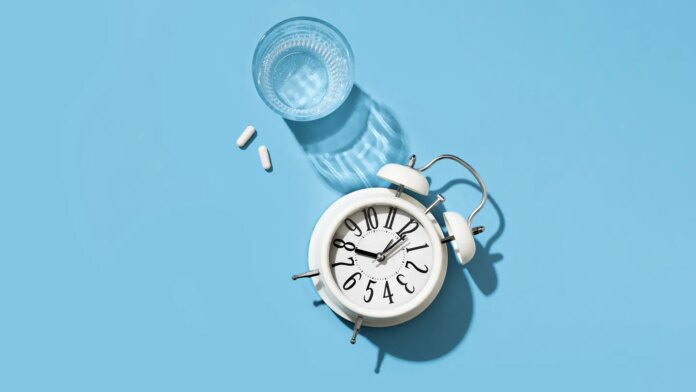The study author Xiaoping Chen, MD, a professor of cardiology at the West China Hospital of Sichuan University, says that the main finding — a 3 millimeters of mercury (mmHg) greater reduction in nighttime systolic blood pressure — may lower the risk of a heart attack or stroke, though more evidence is needed to build on the results.
What Is Hypertension?
“Lowering blood pressure can lower the strain on blood vessels and the heart,” says Nishant Shah, MD, an associate professor of medicine at Duke University School of Medicine in Durham, North Carolina, who has conducted research in cardiovascular disease prevention but was not involved in the new study. “Having high blood pressure can also damage blood vessels and cause plaque buildup that obstructs blood flow to the heart and brain — leading to heart attacks and strokes.”
Why Might Blood Pressure Medication Timing Matter?
“The question is whether lowering nighttime blood pressure is advantageous over lowering daytime blood pressure. Clinical evidence for this benefit is missing — or at least highly debated,” says Florian Rader, MD, a professor of cardiology and the medical director at Cedars-Sinai Hypertension Center in Beverly Hills, California, who also was not involved in the new research.
Importance of a Consistent Hypertension Treatment Plan
To investigate the timing of blood pressure medications, researchers recruited more than 700 people with high blood pressure from 15 hospitals in China. The participants were about 56 years old on average, and they were randomly split into two groups: one group took their medication in the morning, and the other at night.
Omar Al Dhaybi, MD, the director of cardiology hypertension at Mount Sinai Fuster Heart Hospital in New York City, says this combination medication is commonly prescribed in the United States to treat hypertension.
“There are some hypertension medications that are better taken in the morning for various reasons, and some medications may be better taken in the evening due to possible side effects that are more well-tolerated at night,” says Shawna D. Nesbitt, MD, an expert with the American Heart Association (AHA) and the John C. Vanatta III Professor of Internal Medicine-Hypertension at the University of Texas Southwestern Medical Center in Dallas, who was not involved in the JAMA study. “In addition, drug interactions with other medications you’re taking is an important factor to consider as you determine dosing times.”
The Future of Hypertension Treatment Research
The study authors acknowledge that there are several study limitations that would require additional research to confirm.
For example, because the trial included only Chinese participants who were not diagnosed with heart disease, Dr. Shah says the findings are not definitively generalizable to other populations. “There could be environmental or cultural factors playing a role in the results,” he explains. It’s also not clear whether the results could be generalizable to different types of hypertension medications, the study states.
In addition, the participants self-reported how well they stuck to the dose timing, which could allow room for error — and their medication compliance was not confirmed through urine drug testing, Al Dhaybi points out.
Future studies with a longer follow-up time frame could help expand on the findings and further investigate the connection between blood pressure medication timing and heart health outcomes, says Dr. Nesbitt.
“We still do not know whether nighttime dosing of antihypertensive medications leads to better heart health outcomes, like reducing heart disease risk, more than daytime dosing,” adds Dr. Rader.

